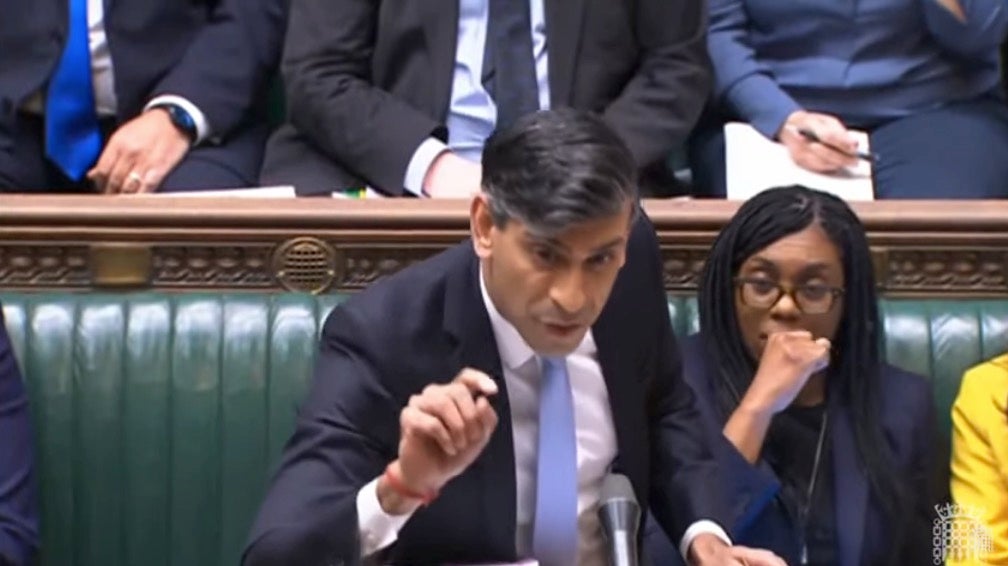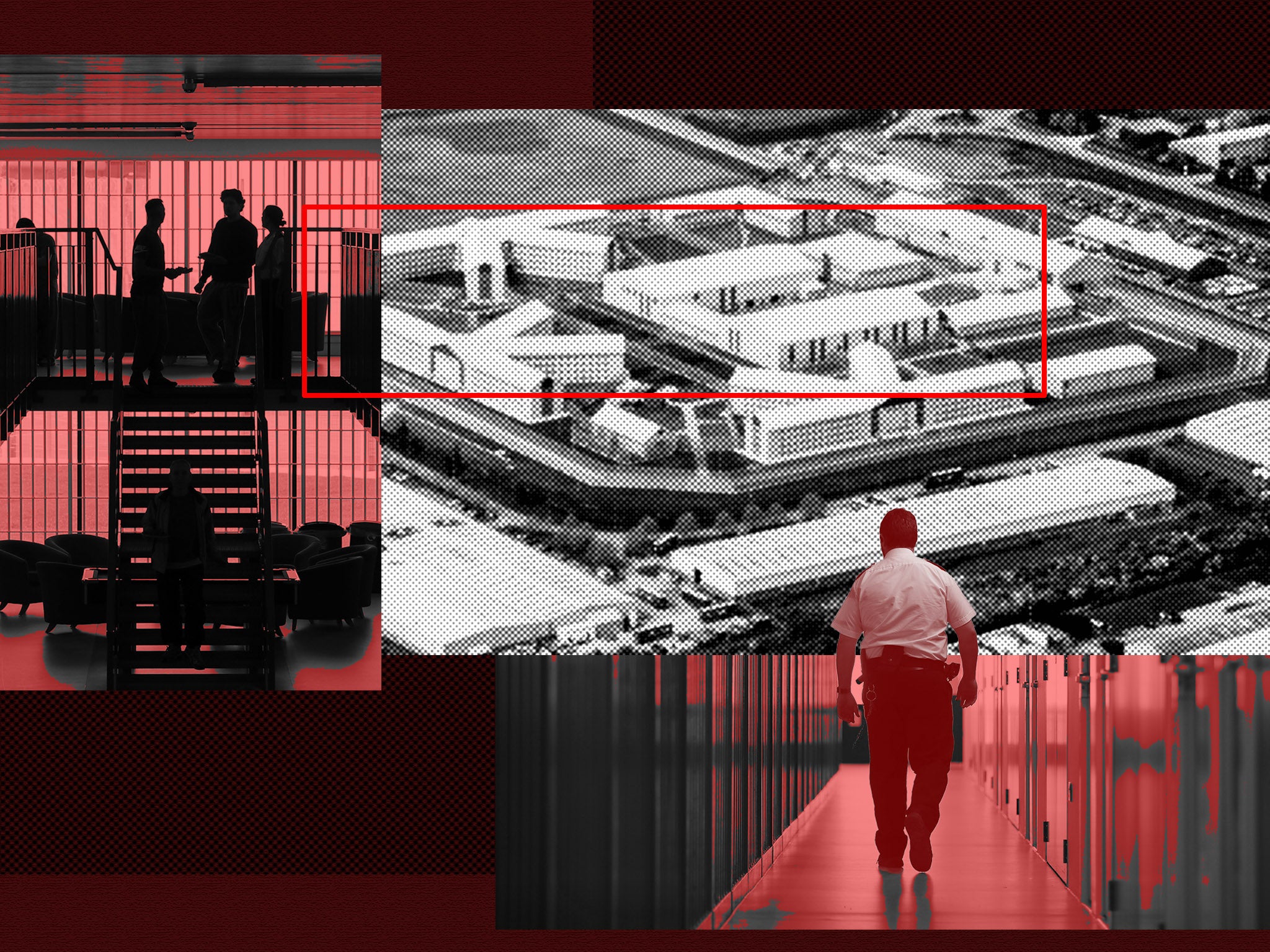Emergency move to postpone court hearings as prisons run out of cells
‘We cannot continue like this’: Bar Council warnings as courts hit with immediate delays under Operation Early Dawn
Your support helps us to tell the story
From reproductive rights to climate change to Big Tech, The Independent is on the ground when the story is developing. Whether it's investigating the financials of Elon Musk's pro-Trump PAC or producing our latest documentary, 'The A Word', which shines a light on the American women fighting for reproductive rights, we know how important it is to parse out the facts from the messaging.
At such a critical moment in US history, we need reporters on the ground. Your donation allows us to keep sending journalists to speak to both sides of the story.
The Independent is trusted by Americans across the entire political spectrum. And unlike many other quality news outlets, we choose not to lock Americans out of our reporting and analysis with paywalls. We believe quality journalism should be available to everyone, paid for by those who can afford it.
Your support makes all the difference.The government has been forced into yet another emergency measure to deal with the prisons overcrowding crisis, with court hearings delayed where no jail cell can be found.
As the crisis in the criminal justice system reached new levels, Downing Street was also forced to deny that Rishi Sunak misled parliament on Wednesday with his insistence that dangerous offenders were not being freed from prison early – despite inspectors revealing evidence to the contrary just days prior.
Legal professionals were left scrambling for official information on Tuesday night as claims emerged that an unknown number of hearings at magistrates’ courts would be delayed as part of an emergency response to the prisons crisis, dubbed Operation Early Dawn.
Magistrates warned they still remained in the dark about the plans on Wednesday, as the Ministry of Justice confirmed it would immediately begin delaying hearings when no prison cells can be found for suspects otherwise at risk of being stuck in prison vans with nowhere to go from court.

It is just the latest emergency measure brought in to stem the crisis in prisons, with the government forced to house prisoners in police cells and quietly expanding its early-release scheme from 18 to up to 70 days this month, with The Independent revealing that some female prisoners are also being freed early.
Law Society president Nick Emmerson warned: “Victims, witnesses, defendants and lawyers will today turn up at magistrates’ courts across England only to find out that their cases have been delayed due to a crisis in prison and police cell capacity outside of their control.
“As of now, we understand that this pattern will be repeated every day that this emergency measure is in place,” he said, adding that the leading representative body for solicitors was seeking more information from the government “to understand the full implications of this emergency measure”.
“What is crystal clear is the prison spaces crisis is a consequence of the government’s approach to justice including over a decade of underfunding of our criminal justice system, which also sees chronic shortages of judges and lawyers, huge backlogs of cases and crumbling courts.”

The Magistrates’ Association criticised an “alarming” lack of information on the emergency plans, as it warned on Wednesday that magistrates had still not been informed about the plans to delay hearings.
Warning that every delay has “real-life consequences for victims, witnesses and defendants” and leads to court officials “sitting around waiting rather than administering justice”, the group’s chief executive, Tom Franklin, said: “That is a waste of resources, at a time when there are already large backlogs.”
While officials were unable to give an estimate of how many trials could be delayed as part of Operation Early Dawn, the Ministry of Justice told The Independent that claims on Tuesday night that private firm Serco would decide which hearings to postpone were false.
Operation Early Dawn is understood to have already been used at certain courts this year, but has been initiated nationwide to be monitored for at least the next seven days, in a move which could put pressure on police as suspects are either held in police custody for longer or bailed as their court hearings are postponed.
Accusing ministers of continuing “to make major and unprecedented changes to the justice system without so much as a word to the public”, Labour’s shadow justice secretary, Shabana Mahmood, said: “It’s completely unacceptable and the public will be alarmed at this latest panic measure.
“The government is stalling justice and leaving victims in limbo because of the mess they have created. This comes days after they hid from the public that they’re now letting criminals out of jail earlier than ever before.
“It is astonishing that lawyers and witnesses, let alone the public, are none the wiser on which cases will actually be affected – how many people will be let out on bail when they should have been remanded, and how will the government ensure public safety is not compromised?
“This is no way to run the justice system, and it is certainly no way to run the country.”
Legal professionals will do everything they can “to ensure that the day-to-day administration of justice continues so far as possible”, said Bar Council chair Sam Townend KC – as he warned: “We cannot continue like this.”

The latest emergency measure is “just one symptom of the chronic lack of investment in the criminal justice system for so long”, he said, pointing to soaring average trial waiting times and worsening backlogs.
As previously highlighted in The Independent, Mr Townend warned that “with reducing numbers of guilty pleas and victims of crime giving up on criminal cases, the government must now show that it takes criminal justice seriously”.
“Real and sustained investment in prisons, courts, judges, solicitors and barristers is needed, and now, otherwise these emergency measures will just precipitate more,” he said.
Mr Sunak and Sir Keir Starmer clashed in the Commons over the prisons crisis at PMQs on Wednesday, with the Labour leader accusing him of issuing “get out of jail free cards” to criminals with the early-release scheme.
Pressed on a recent inspection report at HMP Lewes – which found that a man accused of stalking, domestic abuse and posing a risk to children was among high-risk offenders “chaotically” released under the scheme, despite prison officials urging otherwise – Mr Sunak said: “No one should be put on this scheme if they are a threat to the public.”
Insisting that “governors in the prison service have an absolute lock so that no one is put on the scheme who shouldn’t be”, the prime minister told MPs: “There are strict eligibility criteria in place, with exclusions based on public safety and no one will be put on the scheme if they were deemed a threat to public safety.”
The Independent has sought clarification from the Ministry of Justice on whether it is governors – or in fact senior government officials – who can overturn the decision to free someone early.
No 10 insisted to reporters that Mr Sunak had not misled parliament.
A Ministry of Justice spokesperson said: “This government is categorical that the most dangerous offenders should stay behind bars for longer, which is why new laws will keep rapists locked up for every day of their prison sentence and ensure life means life for the most horrific murderers.
“We continue to see pressure on our prisons following the impact of the pandemic and barristers’ strike which is why we have initiated a previously used measure to securely transfer prisoners between courts and custody and ensure there is always a custody cell available should they be remanded.”

Join our commenting forum
Join thought-provoking conversations, follow other Independent readers and see their replies
Comments